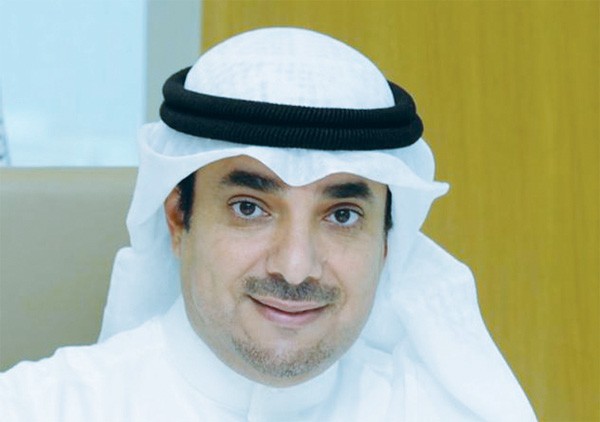14/02/2024
14/02/2024

Two weeks after the decision of the International Court of Justice, will Israel adhere to the court’s orders, and after the International Court of Justice ordered Israel to prevent acts of genocide whose attacks led to the deaths of hundreds more people in Gaza, and in the interim decision the court ordered Israel to adhere to six temporary measures: -
These obligations included preventing acts of genocide, addressing direct and public incitement to genocide, and ensuring the provision of basic services and humanitarian assistance to civilians in Gaza. Furthermore, the court ordered Israel to protect evidence of genocide and to submit a report to the International Court of Justice within a month, detailing its compliance with these orders. .
However, South Africa’s Foreign Minister, Naledi Pandor, confirmed last week that Israel had not adhered to the ruling, claiming that hundreds more civilians in Gaza had been killed in the intervening days.
The question that arises is: What measures, if any, has Israel taken to implement the directives of the International Court of Justice up to this point?
Has Israel taken measures to prevent acts of genocide?
In the week following the ICJ ruling, there is evidence that Israeli forces did not take effective measures to prevent acts of genocide and continued their military offensive in Gaza, resulting in approximately 2,000 additional Palestinian casualties since the court’s decision on January 26, 2024. (Source: Ministry of Health in Gaza.)
South African Foreign Minister Naledi Pandor expressed concern, saying last week that ongoing military operations indicate that Israel believes it has the freedom to act without restraint and despite specific orders issued by the International Court of Justice, hospitals in Gaza continue to be targeted by Israeli attacks. This exacerbates the pressure on the region’s already collapsing healthcare system.
It is worth noting that the Nuseirat refugee camp and the areas surrounding Nasser Hospital in Khan Yunis were subjected to attacks this week, and Al-Amal Hospital in Khan Yunis was under a 11-day siege, as the Palestinian Red Crescent Society reported that Israeli forces stormed the hospital for the third time last Thursday, and Israel denied these allegations.
A military spokesman stated that there was no break-in, entry, or orders for people to leave the hospital at gunpoint.
Conflicting reports indicate Israel’s potential compliance with ICJ directives and the ongoing impact on civilian lives and healthcare facilities in Gaza.
Has Israel taken controversial steps since the ICJ ruling?
Last week, Israeli Defense Minister Yoav Gallant made it clear that Israel does not intend to stop its military operation in Gaza anytime soon. Gallant was one of three Israeli officials personally criticized by the International Court of Justice for comments they made that could be considered incitement to genocide against Palestinians.
Galant said in a press conference that the Israeli military operation in Khan Yunis, which it began last week, was successful, paving the way for its forces to now advance towards Rafah on the side’s southern border with Egypt.
Galant said: “We are achieving our mission in Khan Yunis, and we will also reach Rafah and eliminate the terrorist elements that threaten us.”
Rafah is filled with internally displaced Palestinians, who have no places to go inside the Gaza Strip.
“Thousands of Palestinians have continued to flee to the south, which already hosts more than half of the population of about 2.3 million people,” Janis Lerka, spokesman for the Office for the Coordination of Humanitarian Affairs, said on Friday, February 9, 2024. It is not clear where Israel intends for Gazans to move if Rafah becomes the new center of its attacks.
Has Israel punished anyone for their genocide statements?
To date there is no public information to indicate that Israel has taken punitive measures against ministers or officials who made statements inciting genocide. The genocidal rhetoric highlighted in the South Africa v. Israel case includes statements by various figures including Prime Minister Benjamin Netanyahu, Deputy Speaker of the Knesset Nissim Faturi, and Heritage Minister Amichai Eliyahu, among others.
These statements, which have been criticized for dehumanizing Palestinians and incitement to violence, remain unaddressed by the Israeli authorities. Moreover, some Israeli government ministers, such as National Security Minister Itamar Ben Gvir and Finance Minister Bezalel Smotrich, attended events calling for the rebuilding of settlements in Gaza. and creating more in the occupied West Bank, a position that has been criticized as endorsing the ethnic cleansing of Palestinians. .
Article IV of the Convention on the Prevention and Punishment of the Crime of Genocide states that persons who commit the crime of genocide or any of the other acts mentioned in Article III shall be punished, whether they are constitutionally responsible rulers, public officials or private individuals.
Has Israel taken steps to ensure humanitarian access to Gaza?
Available information does not indicate that Israel has taken effective steps to ensure the unhindered flow of humanitarian aid to Gaza. Since December 2023, aid and fuel trucks have faced obstacles due to the Israeli blockade and continuous bombing of the Strip. The International Court of Justice ordered Israel to implement temporary measures to provide basic services and humanitarian aid, but the challenges remain. It still stands.
Furthermore, Israel accused 12 UNRWA employees of direct involvement in the Hamas attack on 7 October 2023, and later major donors including the United States and the Kingdom
The United Nations and Germany have suspended their funding to UNRWA. This development has raised concerns about UNRWA’s ability to continue providing basic services in Gaza, which could lead to a humanitarian crisis.
Is it possible to impose sanctions on Israel for not complying with the orders of the International Court of Justice?
ICJ decisions are legally binding on Israel, and in the event of non-compliance any member of the UN Security Council can bring the case to the Council, which may then vote to force Israel to adhere to the interim measures.
Potential consequences of non-compliance include UN sanctions, such as economic/trade measures, arms embargoes and travel bans. The Security Council even has the authority to intervene forcefully although any sanctions could be subject to a US veto due to its close alliance with Israel, notes law professor Nev Gordon. The International Committee noted that the Security Council’s decision may carry a different weight than the decision of the International Court of Justice.
Israel insists that its actions are in self-defense against Hamas, while casualty reports issued by the Gaza Ministry of Health indicate that the majority of the victims are women and children.
Article 27 of the UN Charter on the veto states that the framers of the UN Charter envisaged that five countries – China, France, the Union of Soviet Socialist Republics (USSR) [succeeded by the Russian Federation in 1990], the United Kingdom and the United States – because Their key roles in establishing the United Nations will continue to play important roles in the maintenance of international peace and security. They are granted the special status of permanent member states of the Security Council, along with a special voting power known as the “veto.” The drafters agreed that if any of the five permanent members cast a negative vote in the 15-member Security Council, the resolution or decision would not be approved.
Tareq Yousef Alshumaimry served as advisor and head of the Finance Committee and head of the General Budget Committee at the Permanent Court of Arbitration in The Hague (PCA), an observer in the Administrative Council and the International Court of Justice, and an advisor at the Embassy of the State of Kuwait in the Netherlands during this period from 2013 to 2020.
E-mail:[email protected]
By Tareq Yousef Alshumaimry


